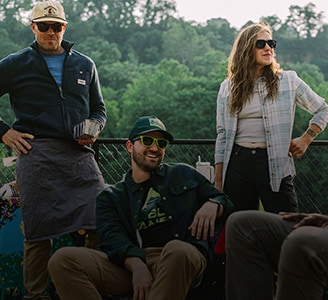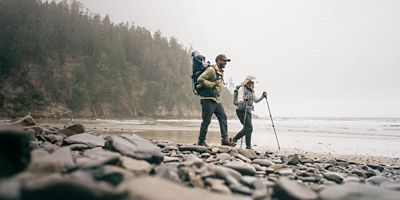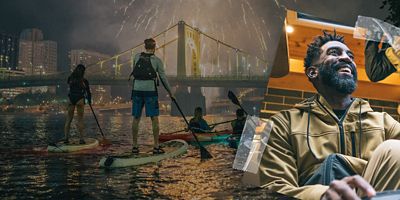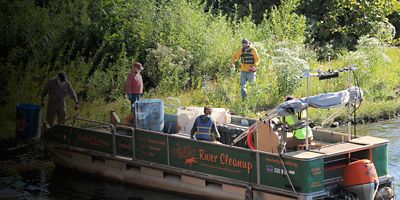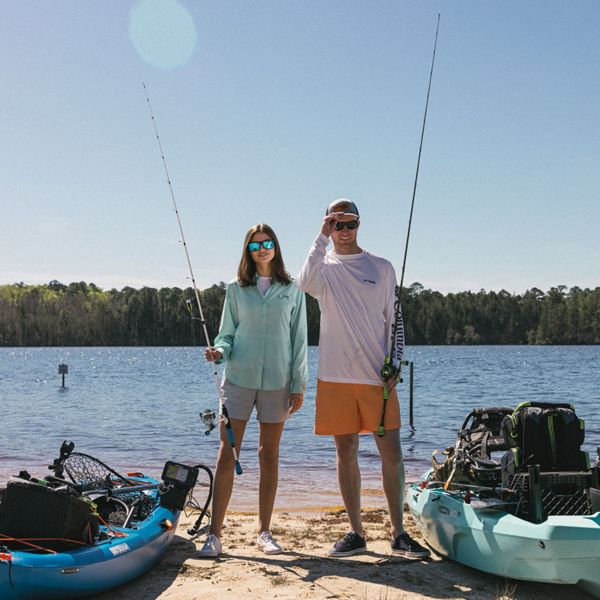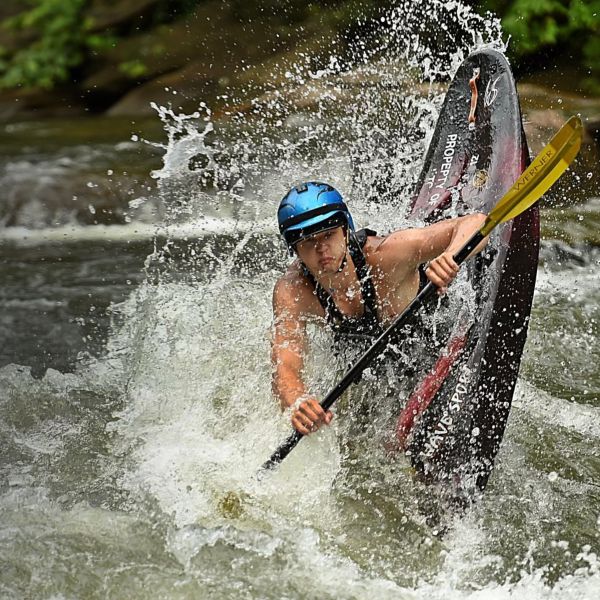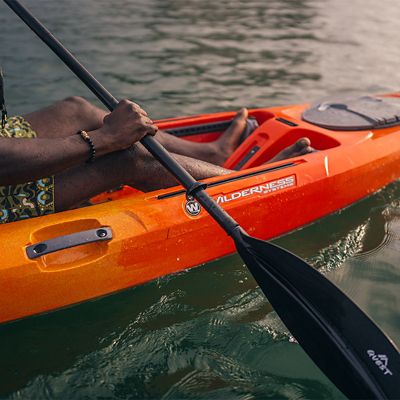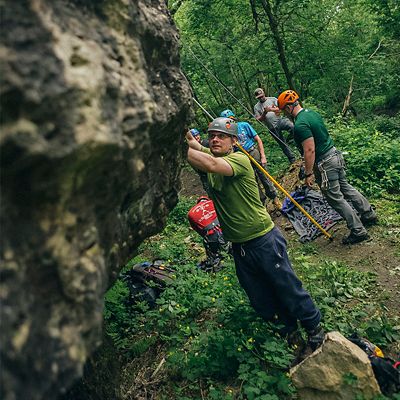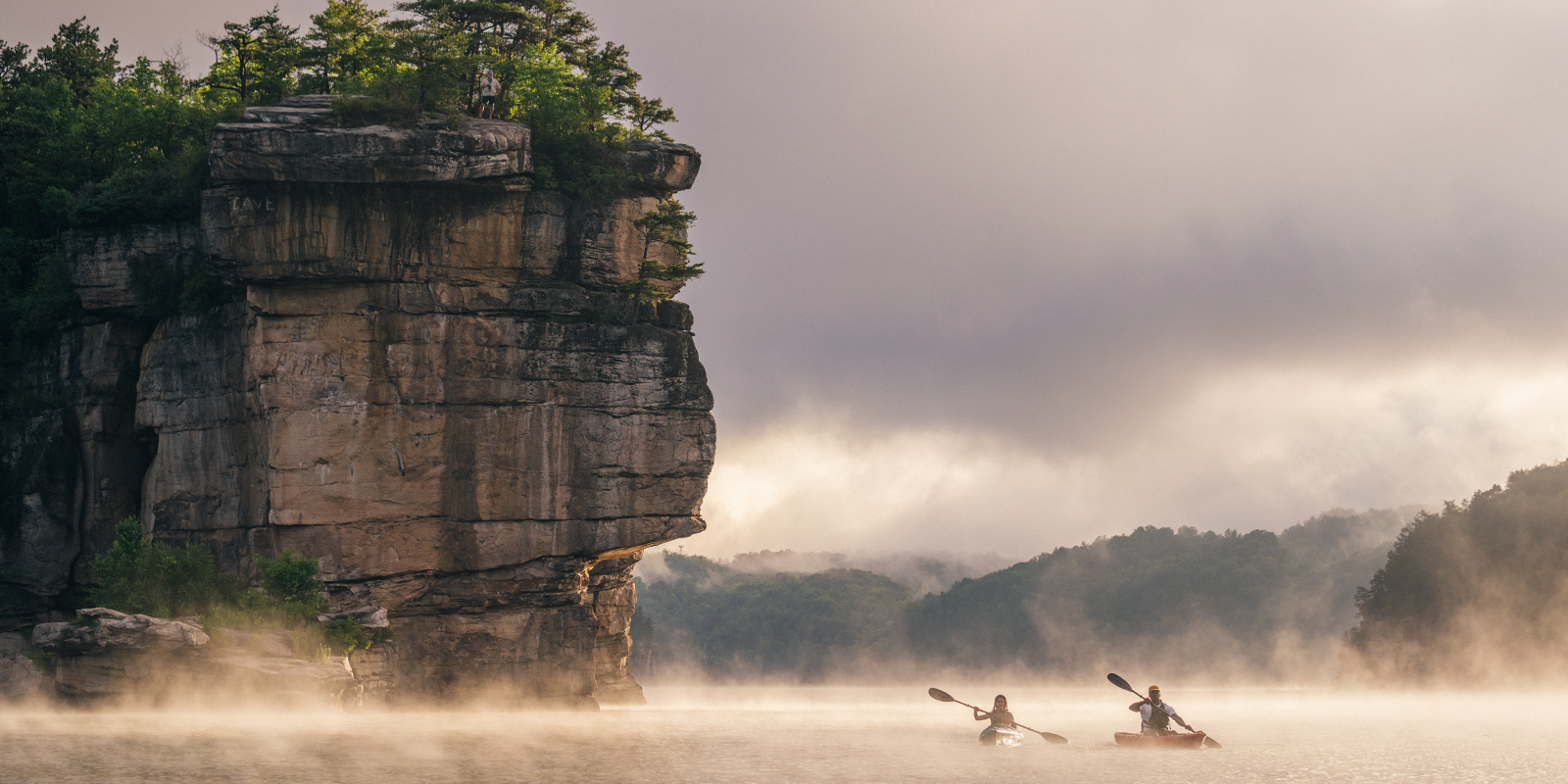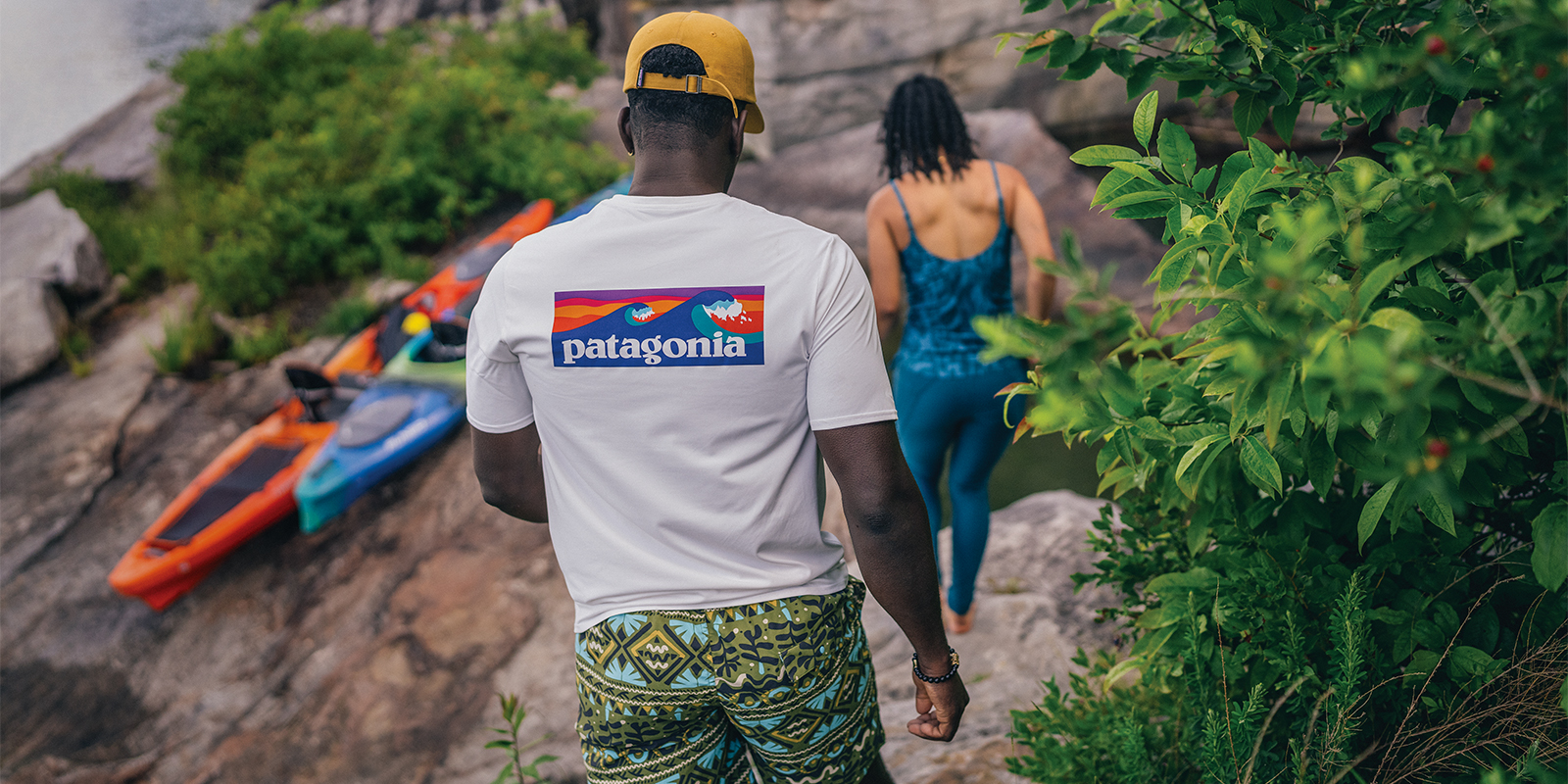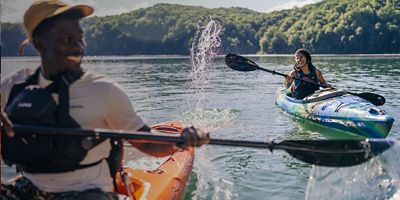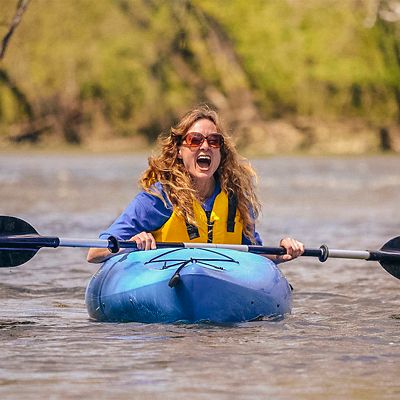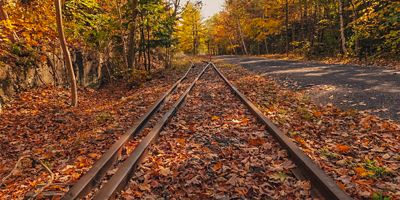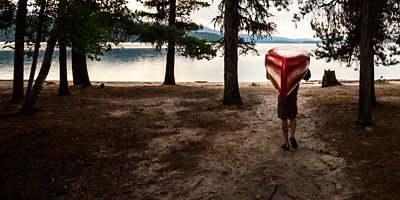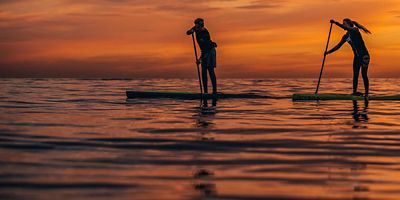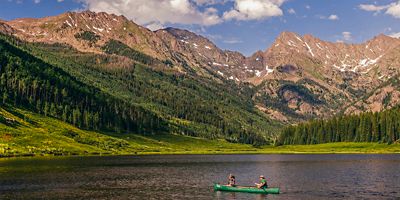
The Chattahoochee River might be a mild float as it passes through Metro Atlanta, but things change drastically as it hits Columbus, Ga., about 90 minutes south. There, a large-scale river restoration project has helped re-establish more natural flows and repaired natural habitat on a section of river that drops 35 feet in 2 miles, right through downtown Columbus. The city also added an adjustable surf wave, called a Waveshaper, that allows park managers to fine-tune the size of the wave for kayakers. They even installed lights so paddlers can play at night.
The final result is a 2.5-mile stretch of the Chattahoochee called the RushSouth Whitewater Park, with more than five Class IV-V rapids and 10 smaller rapids scattered between the big hits. It’s considered the largest urban whitewater park in the world, and the southernmost whitewater river in the United States. The Chattahoochee has a lot of rapids in a short stretch, but what truly sets the run apart is the sheer volume of water being released from the dam, which can reach up to 13,000 cubic feet per second (CFS) in volume. By comparison, southeast Tennessee’s popular Ocoee River peaks at 1,100 CFS. The RushSouth section typically shifts between 800 and 13,000 CFS during the day, giving the features’ incredible variety between morning and afternoon.
The response from the paddling community has been overwhelmingly positive. The whitewater park hosted the 2018 USA National Freestyle Kayaking Championships and is slated to host the Freestyle World Cup in October 2022 and the Freestyle World Championships in July 2023. The area has become particularly popular during the winter, when other well-known whitewater destinations are too cold to paddle. Locals quip that the water is “as wild as Colorado but as warm as Costa Rica.” As a result, dozens of migrating kayakers take over an abandoned parking lot each winter living in campers and cars for months on end. They call the place their “Wintering Grounds.”
